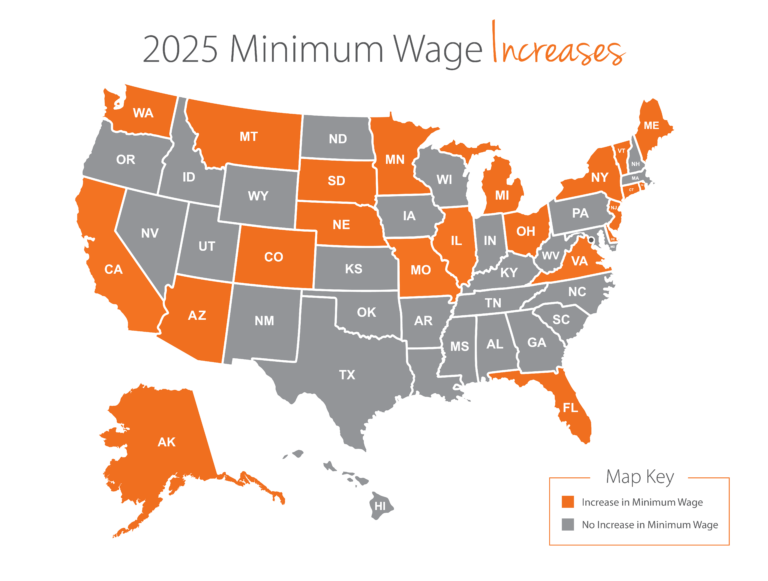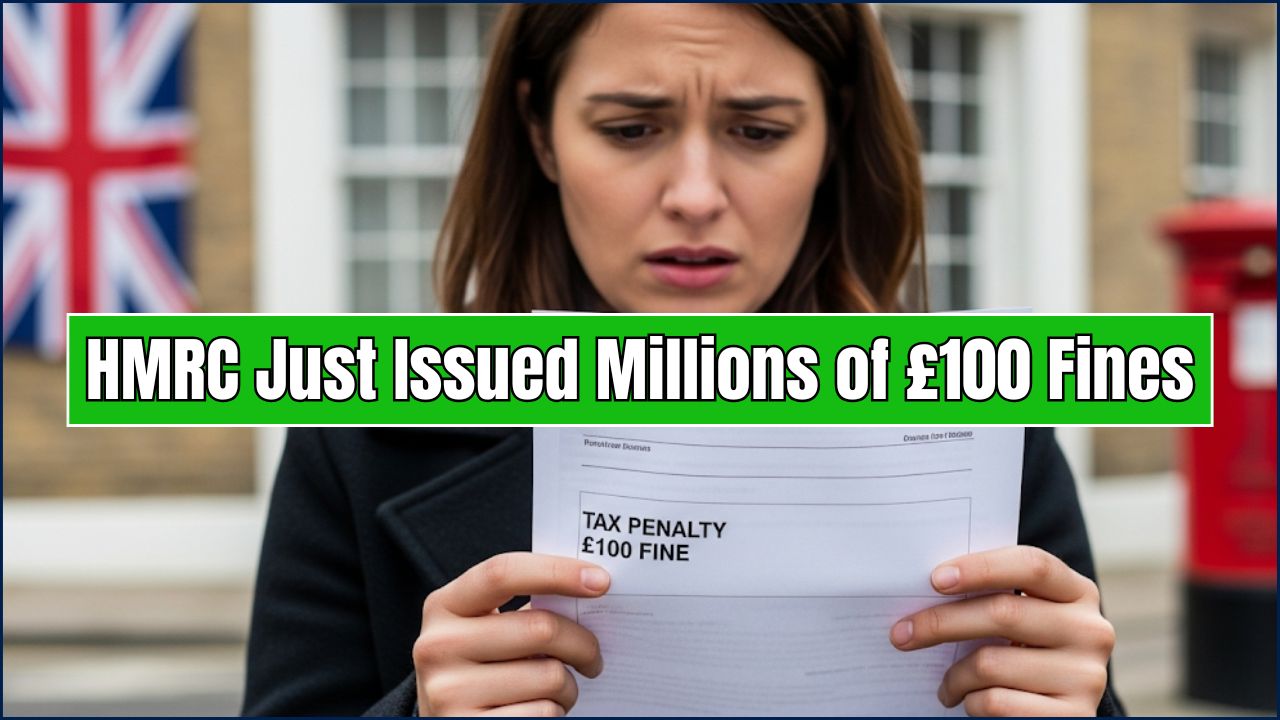In 2025, minimum wage in America just jumped, and it’s making waves from sea to shining sea. Whether you’re flipping burgers in Florida or managing a cash register in California, you’re probably wondering what this means for your paycheck. Let’s break it down, keep it real, and give you the full scoop on what workers will earn in every state this year.

With over 20 states raising their minimum wages starting January 1, 2025, and more joining the movement mid-year, it’s high time to understand where you stand. From $7.25 federal minimum to local rates soaring above $17/hour, there’s a lot to unpack. This article will help you make sense of the changes with solid facts, easy examples, interactive maps, case studies, and practical advice.
Minimum Wage in America Just Jumped
| State | Minimum Wage (2025) | Effective Date | Notes | Official Source |
|---|---|---|---|---|
| Washington, D.C. | $17.95 | July 1, 2025 | Highest in the U.S. | dc.gov |
| Washington State | $16.66 | Jan 1, 2025 | Indexed to inflation | lni.wa.gov |
| California | $16.50 | Jan 1, 2025 | Local rates may be higher | dir.ca.gov |
| Florida | $13.00 | Jan 1, 2025 | Rises to $14 on Sept 30 | floridajobs.org |
| Federal | $7.25 | Ongoing since 2009 | Minimum unless state says otherwise | dol.gov |
The minimum wage in America in 2025 just jumped, giving millions a needed raise. From small towns to major metros, the movement toward livable wages is gaining speed. Whether you’re just starting your first job or leading a business, knowing your state’s rate is key.
This wage shift isn’t just about money—it’s about dignity, fairness, and making sure no one working full-time lives in poverty. So go check your pay stub, know your rights, and speak up if something ain’t right.
What is Minimum Wage, and Why Does It Matter?
Let’s keep it simple. Minimum wage is the lowest legal hourly pay employers can give their workers. It’s set by federal, state, or even city law. When states set their own higher minimum, that overrides the federal one.
Why does it matter? Because it decides if you’re earning enough to pay the bills, eat three meals a day, and maybe even stash away some savings. In 2025, that baseline just jumped higher in over 25 states, which is great news for workers trying to keep up with rent and groceries.
Interactive Wage Map
Want a quick glance at who’s earning what? Use our interactive U.S. wage map to see minimum wage levels by state in 2025, and hover to view local jurisdiction details.

Breakdown: Who Earns What in 2025?
Top-Paying States
These states are leading the charge with the highest minimum wages:
- Washington, D.C. – $17.95/hr
- Washington State – $16.66/hr
- California – $16.50/hr
- Connecticut – $16.35/hr
- New York (NYC/Downstate) – $16.50/hr
These places usually tie wage increases to inflation, meaning they go up automatically every year.
Mid-Range States
Middle-of-the-pack states include:
- Illinois, Maryland, Massachusetts – $15.00/hr
- New Jersey – $15.49/hr (higher for big employers)
- Oregon (Portland) – $16.30/hr
These states are moving toward the $15/hr goal while allowing local cities to set even higher rates.
States Still on the Federal Minimum
Sadly, 20 states are stuck at $7.25/hour, the federal minimum set back in 2009. These include:
- Texas
- Georgia
- Tennessee
- Pennsylvania
Many of these states haven’t passed their own wage laws, leaving workers to live off outdated pay.
How Minimum Wage is Decided
Each state uses one of three methods:
1. Indexed to Inflation
Places like Washington State and D.C. raise their minimum wage yearly based on the Consumer Price Index (CPI).
2. Legislative Increases
States like Florida pass laws with planned yearly increases (e.g., $13 in 2025, $14 in 2026).
3. Ballot Measures
Some states let voters decide via referendum—as Nebraska did to raise theirs to $15 by 2026.
Real-Life Example: Sarah’s Story
Sarah is a single mom working in Miami, Florida. Last year, she made $12/hr. Now in 2025, she’s earning $13/hr, with another bump to $14/hr in September. That $1/hr raise may sound small, but it adds $160 more per month (based on 40 hours/week). That’s groceries, gas, or part of daycare.
Expert Insight: What Economists Say
According to a recent Brookings Institution report, increasing the minimum wage can reduce turnover and boost productivity—but may lead to job cuts in small towns if not balanced with support policies.
Harvard economist Claudia Goldin adds, “When wages go up, so does motivation. Workers stay longer and perform better.”
How This Impacts Businesses
For employers, rising wages mean adjusting:
- Payroll budgets
- Pricing models
- Hiring practices
Some businesses pass costs to consumers, while others automate tasks. But higher wages often lead to better retention and morale.
Tip: If you’re a small business owner, check out SBA.gov for help adjusting to wage hikes.
2024 vs. 2025 Minimum Wage Comparison
| State | 2024 Minimum Wage | 2025 Minimum Wage | Increase |
| California | $16.00 | $16.50 | +$0.50 |
| Connecticut | $15.69 | $16.35 | +$0.66 |
| Delaware | $13.25 | $15.00 | +$1.75 |
| Florida | $13.00 | $14.00 | +$1.00 |
| Illinois | $14.00 | $15.00 | +$1.00 |
| New Jersey | $15.13 | $15.49 | +$0.36 |
| Rhode Island | $14.00 | $15.00 | +$1.00 |
What Workers Should Know
Here’s how to make the most of your paycheck:
Know Your State Rate
Visit your state’s labor website or the DOL site to confirm your rate.
Track Your Hours
Use apps or a notebook. If you’re underpaid, you can file a complaint.
Look for Local Rates
Some cities have higher wages (like Chicago at $16.60 as of July 2025).
Data: Average U.S. Wage Comparison
| Type of Worker | Average Hourly Pay (2025) |
| Federal Minimum Wage Earner | $7.25 |
| State Minimum (Avg.) | $13.25 |
| Fast Food Worker (U.S. Avg) | $14.76 |
| Retail Worker | $15.20 |
| Entry-level Tech Support | $18.50 |
Pro Tips for Workers
- Negotiate: If you’re in a high-wage state, use it as leverage.
- Upskill: Take advantage of free online courses.
- Ask About Benefits: Some employers offer perks that supplement income—like transportation stipends or free meals.
FAQs
Q: Can my employer pay me below the state minimum wage?
A: No, unless you’re a tipped worker, student, or under special training. Otherwise, they must pay the state or federal rate—whichever is higher.
Q: What about tipped workers?
A: Many states allow a lower base wage if tips make up the difference. For example, in Florida, tipped workers earn $8.98/hr base in 2025.
Q: Do teenagers have a lower rate?
A: Sometimes. The Youth Minimum Wage is $4.25/hr for the first 90 days for under-20s. But many states ignore this and require full pay.
Q: How do I file a complaint?
A: Contact your state labor department or the U.S. Department of Labor Wage and Hour Division.
Q: What industries are most affected by minimum wage hikes?
A: Retail, hospitality, food service, and healthcare aides are the top sectors impacted by wage policy shifts.













